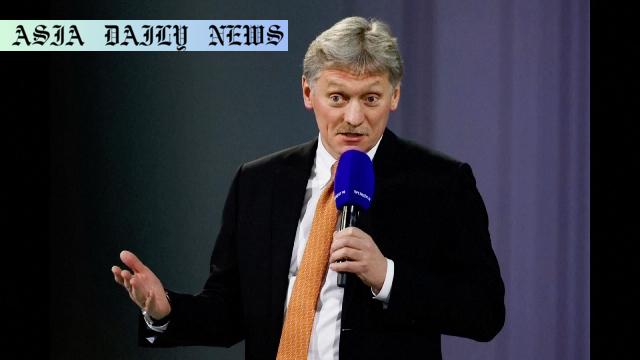Nuclear Disarmament: Russia expresses readiness to negotiate with the US over nuclear weapons reduction, proposing multilateral involvement.
Russia shows interest in nuclear disarmament talks with the US.
The US and Russia have discussed the idea previously, showing mutual willingness.
Kremlin suggests involving other nuclear powers like China, France, and Britain.
Tensions remain due to halted US-Russian contact and Russia’s Ukraine conflict strategies.

Introduction: A New Push for Nuclear Disarmament
The prospect of reducing nuclear weapons has resurfaced as a point of global importance. Russia has officially expressed willingness to engage in disarmament talks with the United States. This announcement follows remarks by US President Donald Trump, who emphasized the need to curtail nuclear arsenals during a speech at the World Economic Forum. The verbal support from both nations for reinitiating dialogue hints at a possible breakthrough, albeit with complications.
Historic Conversations Between the US and Russia
Nuclear disarmament has long been a contentious yet pivotal topic in global diplomacy. In past discussions, Presidents Trump and Putin reportedly showed an openness to reducing nuclear stockpiles. Trump revealed that Putin is receptive to the idea, as are officials from China, another major power in the nuclear arena. This positions the current moment as a potential turning point for multilateral efforts to address the threat posed by weapons of mass destruction.
Russia’s Perspective and Proposal
Kremlin spokesperson Dmitry Peskov confirmed on Friday that Russia is eager to resume meaningful negotiations. However, the proposal comes with stipulations. Russia believes that broader participation is necessary to achieve substantial progress. Peskov highlighted the importance of including other nuclear powers such as France and Britain in the conversation, suggesting that a multilateral framework would yield more equitable results.
US-Russia Relations and Challenges
Despite this optimism, relations between the US and Russia have been turbulent. Peskov accused Washington of ceasing substantial dialogue with Moscow, effectively stalling any prior progress. The spokesperson remarked that the “ball is in Washington’s court,” placing pressure on the US to take proactive measures.
Ukraine Conflict and Military Dynamics
The backdrop of the Ukraine conflict complicates nuclear disarmament discussions. Observers argue that Russia’s ongoing military involvement suggests a focus on strengthening its armed forces rather than reducing its defense capabilities. Local reports also indicate an effort by Russian authorities to avoid instituting conscription, instead enticing citizens to join the military as contract soldiers with lucrative pay.
The Role of Multilateral Negotiations
The involvement of countries like China, France, and Britain might prove to be a double-edged sword. While their inclusion ensures that any agreement reflects the broader global power dynamic, it could also slow negotiations. Synchronizing positions among diverse national interests in disarmament requires time and patience, especially when trust is in short supply.
Conclusion: Hopes for a Decisive Initiative
The hope for nuclear disarmament hinges on the ability of global powers to prioritize shared security concerns over geopolitical rivalries. As the largest holders of nuclear weapons, the US and Russia bear a unique responsibility to lead by example. However, success requires commitment from all stakeholders to ensure an agreement that effectively reduces the risks posed by these devastating weapons.
Commentary
The Importance of Renewed Dialogue
The announcement that Russia is willing to engage in nuclear disarmament talks with the United States represents a significant development in international relations. Although tensions have largely defined their interactions in recent years, this emerging willingness to negotiate offers a glimmer of hope. It underscores an understanding that nuclear reduction is not just a bilateral issue but a pressing global concern that requires cooperation among world powers.
Challenges Amid Geopolitical Uncertainty
However, the path forward is riddled with challenges. Trust between the US and Russia remains fragile, especially with ongoing contentions such as Russia’s involvement in Ukraine. Moreover, Peskov’s suggestion to involve additional nuclear powers, while logical, adds layers of complexity to an already intricate process. Multilateral agreements require more time, compromise, and careful negotiation.
Balancing Security and Realism
While the idea of reducing nuclear arsenals evokes optimism, it is critical to approach the matter pragmatically. Russia’s continued strengthening of its military forces, particularly in a period of active conflict, raises questions about its genuine commitment to disarmament. Nations involved will need to weigh these realities while remaining steadfast in their pursuit of a safer, nuclear-free future.
Conclusion: A Step Towards Hope
Despite the hurdles, the renewed interest in talks is a step in the right direction. It sends an important message to the global community that dialogue is possible even in the face of adversarial relationships. If the parties involved can maintain open channels of communication and foster trust, there is potential not only for progress in nuclear disarmament but for improved global stability altogether.


